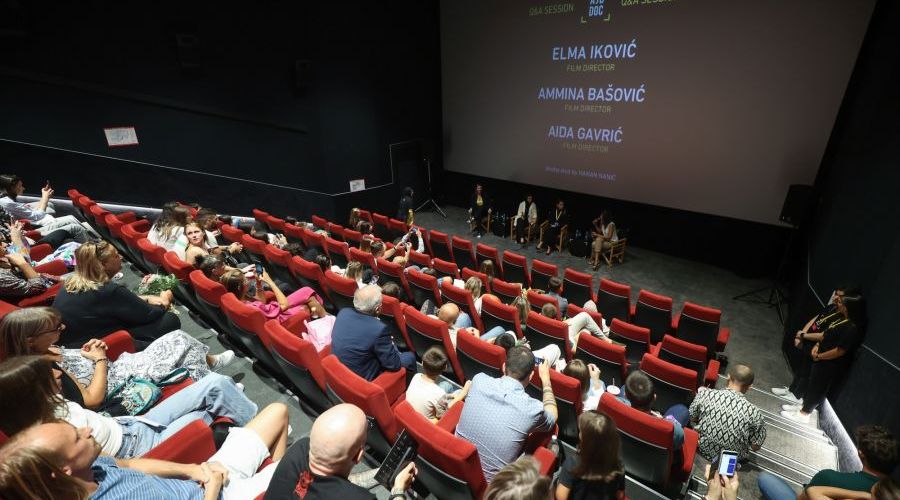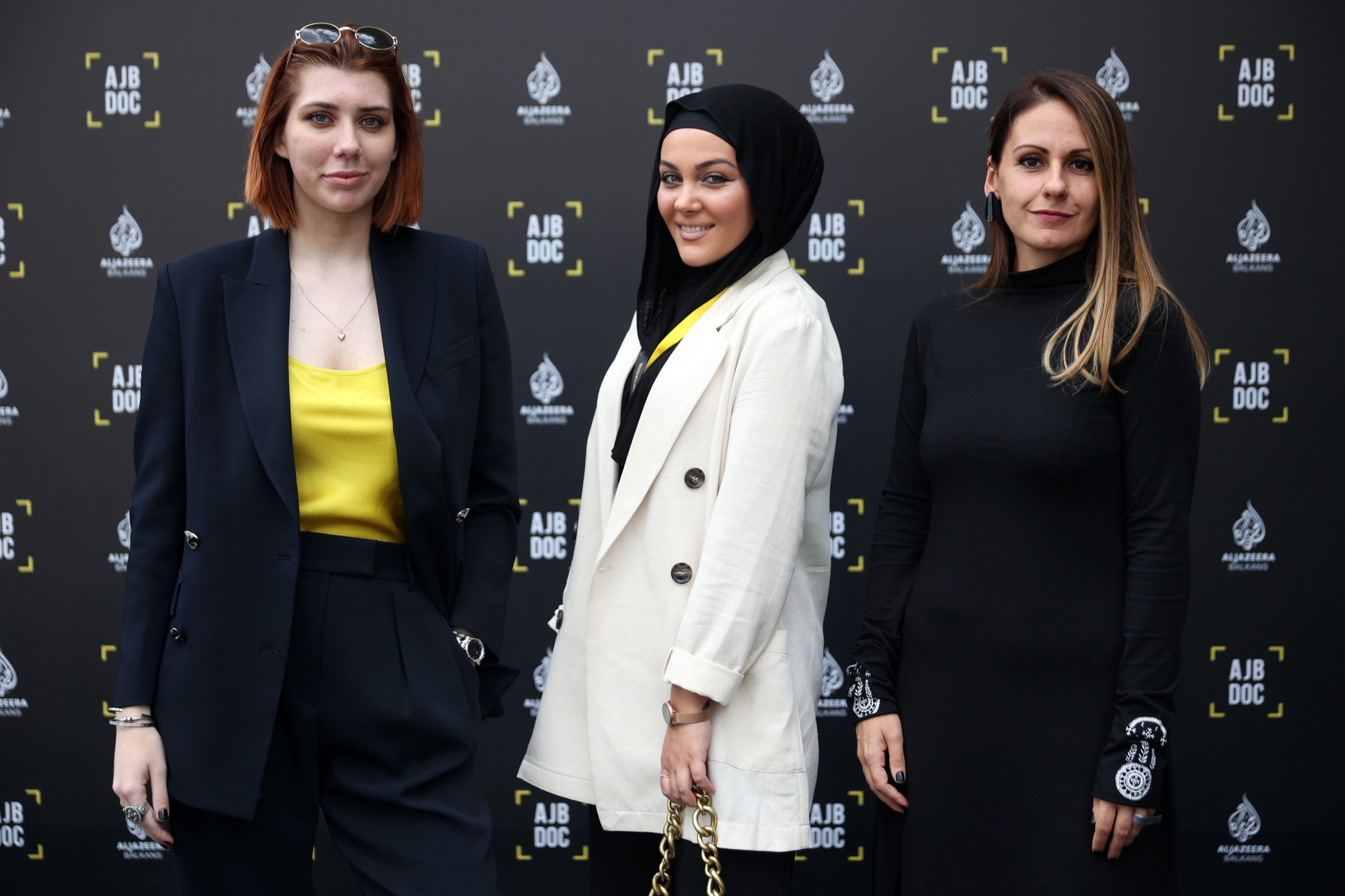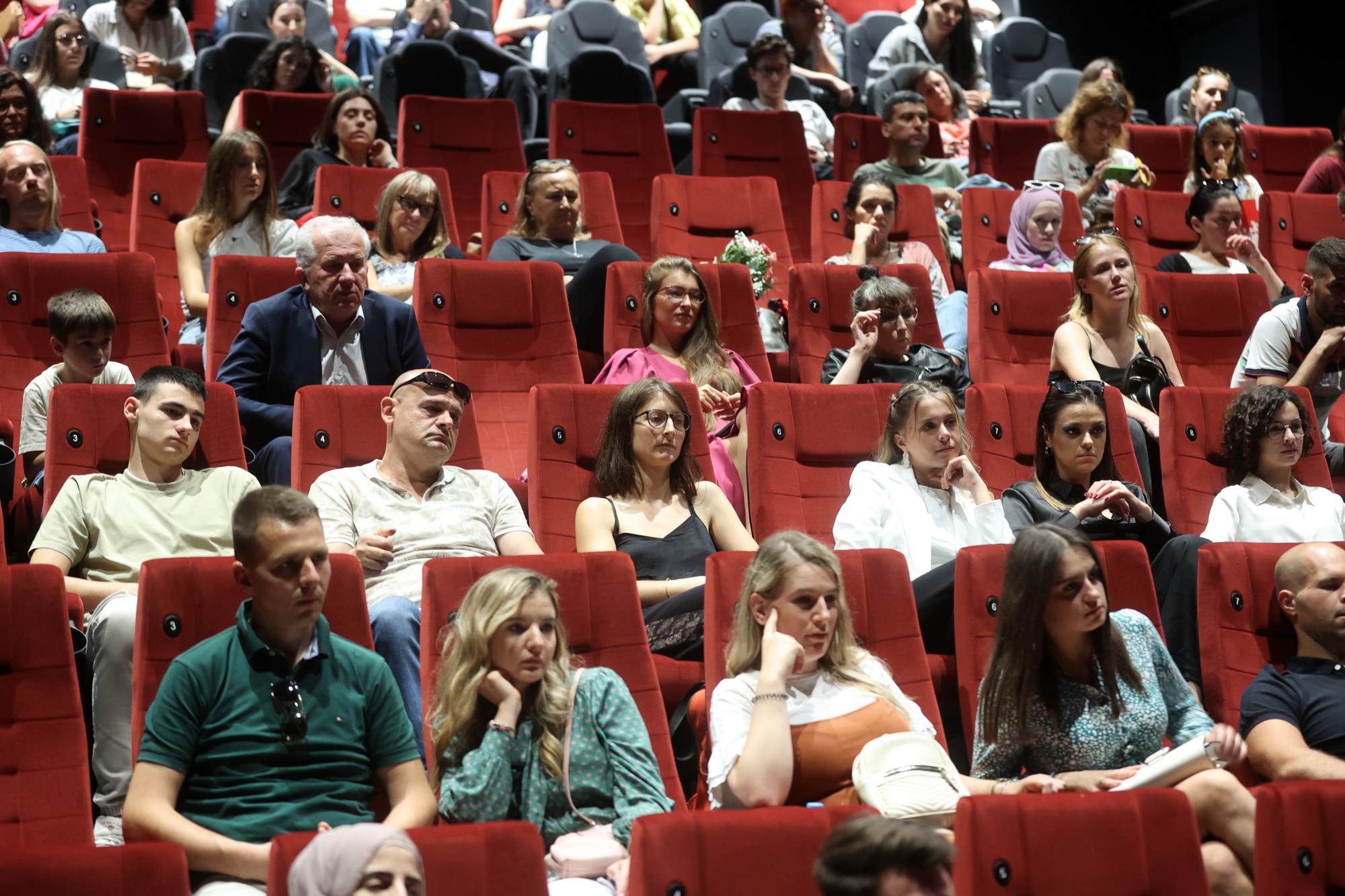SMART Doc: Films recorded with a smartphone shown at AJB DOC
The best projects from last year's training, led by a Pulitzer Prize-winning photojournalist Damir Šagolj, were presented to the audience of the fifth AJB DOC.

As part of the Smart Doc program, the audience of the fifth edition of the AJB DOC Film Festival had the opportunity to watch three documentaries recorded with a smartphone.
Although professional film cameras will
probably never be replaced completely, smartphones, every year with better
cameras, are becoming a serious alternative. Due to the practicality, but also
the ever-improving quality of their cameras, in the world of cinematography the
number of films recorded with smartphones is growing.
With that fact in mind, last year the
organizers of the AJB DOC Film Festival established the Smart Doc program,
which features the best achievements of the participants of the "Making Documentaries
with a Smartphone" training, implemented in cooperation with Al Jazeera
Media Institute, under the auspices of Samsung.
The best projects from last year's
training, led by a Pulitzer Prize-winning photojournalist Damir Šagolj, were
presented to the audience of the fifth AJB DOC.
Films of young authors
Elma Iković, whose project was declared the
best at last year's training, presented the film We are Guilty Too, which
explores the interaction between man and nature and reveals the truth behind
our carefully concealed reality.
"The lack of discourse on this topic,
as well as interest, and I can say that with certainty, enticed me to do
something about it and, ultimately, to make a film. The very name of the film
is my message to all of us - to understand that we need and can do better for
our own sake," Iković said.
As part of Smart Doc, the audience had an
opportunity to watch the film Life with Purpose by Ammina Bašović, which
documented the unusual and emotional life story of Mahira and Esed Ahmiš.
"It was important for me to convey the
sincere emotion, love and faith of this couple, because every day we all need a
lesson and a reminder about the essence, especially now in a time when people
live fast and forget true values, and to use such examples to remind ourselves
that reality is not that difficult for us and that the most important thing is
how we look at it," says Bašović.
Aida Gavrić presented her film The
Colorless, which she used to speak about non-aligned members of the Bosnian-Herzegovinian
society, that is, those who do not belong to any of its three constitutive peoples.
" The Colorless is actually a film
about the non-aligned and non-classifiable members of the Bosnian-Herzegovinian
society who, in a country where the reality is permeated by the national lines
of the three peoples, are labeled as a sort of a surplus, that is, 'others',
and are often perceived as ghosts and fossils of the failed idea of brotherhood
and unity from the previous system," says Gavrić.
"The need to present the story of such
individuals to the general public from a different perspective came from the
need to bring forth the knowledge that they, that is, we, do not need to live
somewhere in between, in parallel worlds, because this country, like the entire
world and the planet, is the homeland of all us, even if we decide for the
option of non-alignment and 'non-belonging'. The idea to convey this through
the film medium came from the need to lay bare and expose this problem on a
higher and wider level, and, of course, the need for a sort of involvement",
she added.
The importance of training
The authors of the documentary films shown
at Smart Doc of the fifth AJB DOC expressed their satisfaction with the
opportunity that they were provided, emphasizing the importance of training in
the production of documentary films with a smartphone, which this festival
organized third year in a row.
"Smart Doc is the embodiment of an
opportunity to enter the world of documentary film, especially for authors who
encounter this form of narrative for the first time, and who have a great
desire and urge to master it and fall in love with it head over heels,"
Gavrić noted.
Iković added that this is the first, yet
big step in her career, which she intends to continue developing in the field
of documentary film.
"I believe that the opportunity to
participate in Smart Doc will open up new perspectives and opportunities for me,
especially in terms of continuing of my formal education in the field of film,
which I plan to do abroad," said Iković.
The importance of training, Bašović emphasized,
is reflected through a concise and precise presentation of the mechanisms and
methods that introduced the participants to the world of documentary film, and
led the best among them to making a film of their own.
"I believe that every opportunity
should be used to the maximum, especially when it comes to smartphones, which
we often 'fall slave to’ by wasting time on social networks. This project
guides young people through technology and practical approach, teaches us what
we can do with a mobile phone and what benefits are hidden behind it. In
addition to learning new things and skills, the festival also opens up
opportunities for new acquaintances and presentation of one's own work,"
Bašović concluded.
This year as well, Al Jazeera Balkans
Documentary Film Festival (AJB DOC) is organizing a three-day training course
"Production of Documentary Films with a Smartphone", led by Al
Jazeera's video journalist Faris Bajrić.

